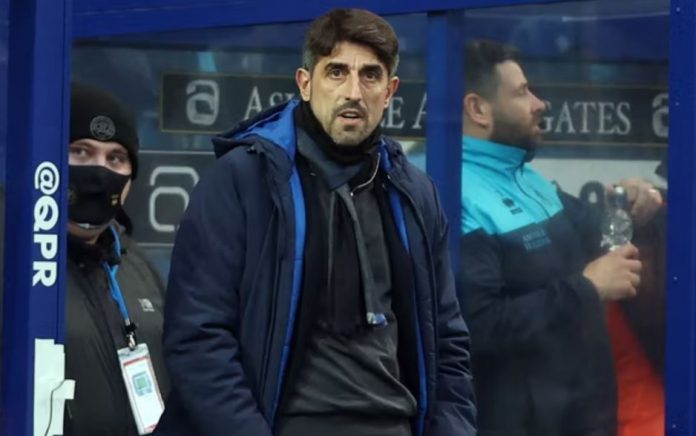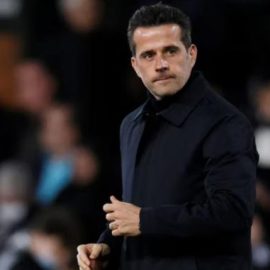Calculators and collection buckets look to be the order of the day this summer as at least three football league clubs – Southampton, Stockport and Darlington – fight for their very existence. If rumours are to be believed, these aren’t the only clubs from Championship downwards who are sailing close to administration.
Even if the three teams do survive, it’s likely we’ll see a repeat of the multiple points deductions in League Two where three teams started off on minus points and, in the case of Luton, effectively decided their relegation before a ball was kicked.
More worryingly, these points deductions are creeping up the football league and it could well be League One that has the most lopsided look when the new season kicks off in August.
The stadium issue
It would be tempting to say that the recession has finally caught up with football but the problems at many of these clubs were already deep-seated and would have come to the fore with or without a global economic meltdown.
Both Southampton and Darington’s problems stem from their stadium. In the Saints case, the debt incurred when building St. Mary’s has hung around the neck the club like Alfonso Alves after a particularly heavy lunch. The £30m debt wasn’t helped by relegation to the Championship and failure to bounce back before the parachute payment run-out.
Two consortiums are thought to be involved in buying out the south coast cub – who turned down a £40m takeover bid in 2007 – and it’s looking, at this stage, increasingly likely that the Saints will start next season, albeit with a ten point penalty. But proof, if any were needed, as to how fragile their position is, comes in the form of talks with the Conference about reforming the club at non-league level.
This option is one that’s increasingly looking like it may be Darlington’s only hope for keeping football in the town. The club are £5m in debt with no discernible assets and have been laying off staff as they attempt to survive the summer.
At the heart of Darlo’s problems is the Darlington Arena, a 27,000 seater white elephant built as a fanciful ego-trip by former chairman George Reynolds as part of his ‘vision’ to establish the Quakers as a footballing force. For the average match, the ground normally sees 3,000 fans if they’re lucky. It’s no surprise this is a massive drain on the club’s resources.
And that huge empty hulk of a stadium could well be the ultimate downfall of Darlington. It’s currently owned by chairman George Houghton via a holding company (the discerning owner’s financial method of choice these days), and Houghton is refusing to throw in the stadium along with the club.
It’s this sticking point that saw former vice-chairman Raj Singh withdraw his bid that could have saved Darlington. As time ticks by, the future looks increasingly grim for the North East club who, but for the points deduction they suffered for going into administration, would have been competing in the League Two playoffs last week.
Testing times for the trust model
Stockport’s troubles can also be traced to their stadium, which isn’t owned by the Hatters. Edgeley Park is currently owned by the Sale Sharks, who took it off the hands of the Cheshire Group consortium who used to own the club. This means that the club are somewhat hampered by the fact they can take very little additional matchday revenue.
But what’s more troubling is the fan-owned club has built up half a million pounds work of debt, most of which is owed to the taxman. This has meant administration, and the inevitable ten point deduction, while Jim Gannon – one of the most successful managers in their history – has been made redundant.
It’s not a great advert for Trust-owned clubs, who were meant to fly the flag for a different way of doing things at boardroom level, an alternative to the boom and bust of chairmen with big ideas but no so big pockets. Now they have to raise £250,000 by next Monday or the future looks bleak.
Given the points deductions handed out to Rotherham, Bournemouth and Luton this season, it wouldn’t be a surprise to see Stockport and Darlington start next season on minus points, given the difficulties clubs have in satisfying the league’s rules in coming out of administration.
With Southampton already starting next season on minus ten points, this could give an all-too familiar lopsided look to the League One table next season.
Staying solvent
What’s more worrying is that, as times get tighter, clubs that have pushed too far may find it harder to extend credit, as Southampton have already found out. Newcastle, if they get relegated from the Premier League, may be the most obvious club to find times tighter than expected but they are by no means the only one.
Strangely, one league that’s not seen any points deductions for administration (although has had plenty of points deductions for misplaced paperwork) has been the Conference. Non-league’s top flight have tightened up on clubs who overspend, while there’s a strict salary cap in place. Boston United have already suffered two enforced demotions because of their recent financial problems.
That isn’t to say that the clubs in the Blue Square Premier are more financially secure. Salisbury, Lewes, Weymouth, and Northwich, among others, have sailed close to the wind. But the Conference’s threat to teams who head into administration does seem to be slowly filtering through.
Indeed, Chester City, relegated from League Two this season, could fall foul of the authorities, as the Seals are incredibly close to administration. Given the precedent they set when Boston suffered a double demotion, it’s not inconceivable Chester could start next season in the Blue Square North.
Interestingly, if Darlington do fold then Chester will be the team who get a reprieve. It’s not an inconceivable situation and it will be interesting to see how the Football League deal with it.
What this all shows is that being well-run and financially stable off the pitch is now more important than ever. Over the coming seasons, it wouldn’t be a huge shock if, from the Championship downwards, those sides who’ve not gone overboard with spending are the ones who succeed on the pitch.
For the time being, the future looks bleak for the clubs detailed here. By suffering another financial meltdown, Stockport became the 98th league club since 1982 to go into administration. It’s unlikely they’ll be the last.
Add Sportslens to your Google News Feed!






